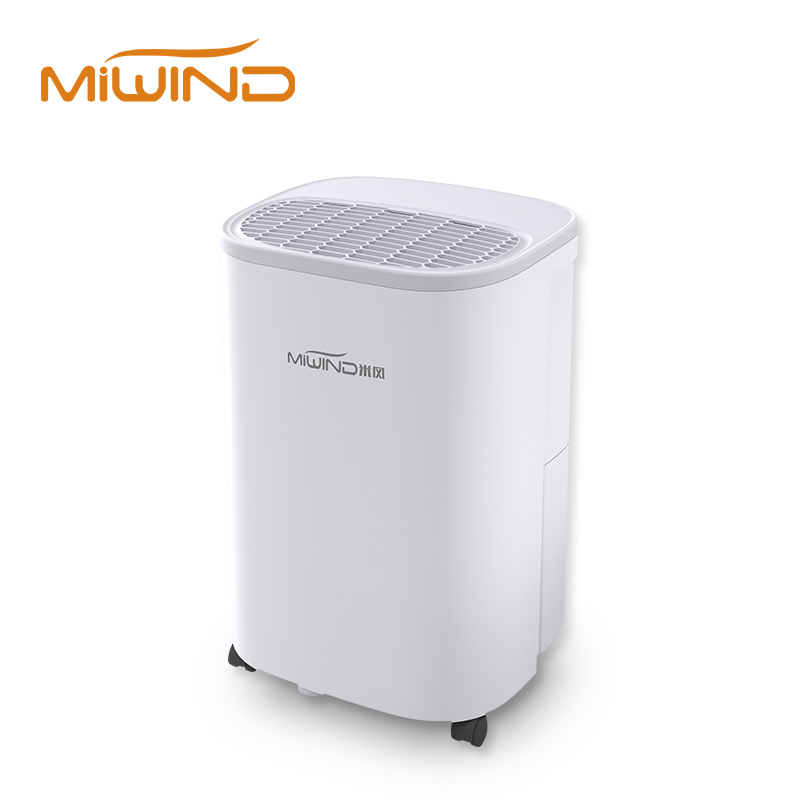
Controlling indoor humidity is essential for comfort, health, and property protection. Whether you are a homeowner seeking a cozy living environment or a business owner safeguarding valuable assets, choosing the right dehumidifier solution is critical.
The market primarily offers two categories: residential dehumidifiers and commercial dehumidifiers. While both are designed to remove excess moisture from the air, their designs, capacities, and applications differ greatly. Understanding these differences ensures you select the most effective unit for your needs.
A residential dehumidifier is designed specifically for homes, apartments, and small offices. These units focus on user-friendliness, quiet operation, and energy efficiency, making them ideal for everyday use in living spaces.
Compact and Stylish Design
Residential dehumidifiers are typically small, lightweight, and aesthetically pleasing. They blend seamlessly into living rooms, bedrooms, or basements without being intrusive.
Quiet Operation
Many residential dehumidifier models are engineered to operate quietly, making them suitable for areas where people sleep or relax. Noise levels are kept minimal so they don't disrupt daily life.
Energy Efficiency
Many home dehumidifiers are ENERGY STAR® certified, ensuring effective performance with lower energy consumption.
Health and Comfort Benefits
By maintaining indoor humidity levels between 30% and 50%, they reduce mold, mildew, and dust mite growth. This improves indoor air quality, prevents musty odors, and alleviates allergy or asthma symptoms.
Protection for Property
Furniture, wooden flooring, electronics, and even the structural integrity of a home can suffer damage from excess humidity. A residential dehumidifier protects these investments by preventing warping, rust, and rot.
Easy Maintenance
These units usually require simple upkeep, such as emptying the water tank and occasionally cleaning or replacing filters.
For homeowners looking for an accessible, cost-effective solution, a residential dehumidifier supplier can provide models tailored to home use, offering comfort and peace of mind.
A commercial dehumidifier is designed for large-scale and demanding environments such as warehouses, gyms, factories, hotels, and restoration projects. Compared to residential models, they provide higher capacity, stronger durability, and advanced control options.
High Capacity Moisture Removal
A commercial unit can extract dozens to hundreds of liters of water per day, making it suitable for large areas with severe humidity problems.
Durability and Robust Construction
Built with heavy-duty materials, commercial dehumidifiers withstand rough handling, frequent transport, and harsh environmental conditions.
Advanced Humidity Control
Many models include digital sensors, programmable settings, and remote monitoring, ensuring precise humidity regulation. This is crucial in industries like pharmaceuticals, food processing, and electronics manufacturing.
Continuous Operation
Unlike smaller units, commercial dehumidifiers are designed for 24/7 operation, often with direct drainage or large water reservoirs. This ensures uninterrupted performance during critical operations such as flood restoration.
Asset Protection and Compliance
Proper humidity control prevents costly damage to inventory, equipment, and building infrastructure. In addition, many industries rely on commercial dehumidifiers to comply with air quality and safety standards.
Maintenance Needs
Due to continuous operation, commercial models require more regular servicing—such as cleaning coils, filters, and drainage systems—to maintain efficiency.
For companies requiring reliable large-scale moisture control, partnering with a commercial dehumidifier factory ensures access to heavy-duty models tailored to industrial demands.
To summarize the main differences:
Capacity – Residential models suit small spaces; commercial models handle large-scale, high-humidity environments.
Design – Residential units prioritize compactness and aesthetics; commercial ones emphasize durability and performance.
Operation – Residential dehumidifiers are quiet and easy to use; commercial ones are powerful, with advanced controls.
Applications – Homes, apartments, and small offices vs. warehouses, gyms, factories, and flood recovery projects.
Maintenance – Minimal upkeep for residential models, more rigorous servicing for commercial units.
Both types serve valuable roles, but choosing the right one depends on your environment, humidity levels, and performance needs.
When deciding between a residential dehumidifier and a commercial dehumidifier, consider:
Space size – A single room or entire warehouse?
Humidity severity – Mild dampness or extreme moisture problems?
Purpose – Comfort at home or compliance in a regulated industry?
Budget and Energy Use – Cost-effective for households vs. long-term ROI for businesses.
By weighing these factors, you can make an informed decision that balances comfort, health, and property protection.
At MiWind, we have over 20 years of expertise in air management solutions, including air curtains, ventilation fans, exhaust fans, fresh air systems, and dehumidifiers.
Whether you need a sleek, portable dehumidifier for your living room or an industrial-grade model for your warehouse, MiWind has the right solution tailored to your needs.
In the debate of residential vs commercial dehumidifiers, there is no one-size-fits-all solution.
By understanding the key differences and benefits, you can confidently select the best system for your needs. And with MiWind's wide range of dehumidification products, you gain access to tailored, efficient, and reliable solutions that keep your environment comfortable, safe, and protected from excess moisture.